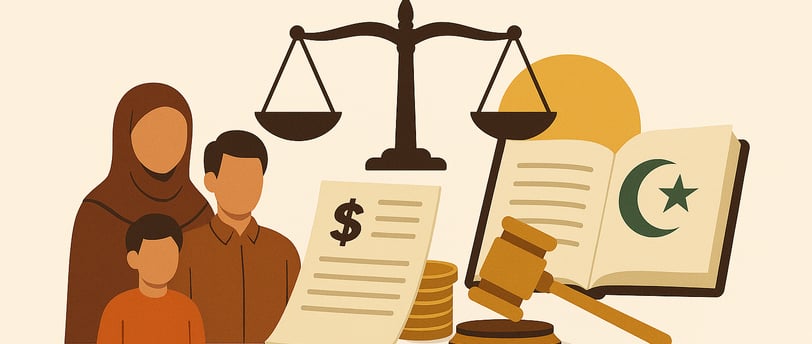Inheritance rules according to Islamic Law
Inheritance laws in the UAE are a key concern for many expatriates, especially when it comes to whether UAE Sharia law or the laws of their home country will apply. While non-Muslims can make wills under UAE law, their enforcement is subject to court discretion. In the absence of a will, Sharia law typically governs. Conflicts may also arise between the Personal Status Law and the Civil Transactions Law, particularly regarding immovable property.
2 min read


The application and interpretation of inheritance laws by UAE courts is a matter of significant concern for many expatriates residing or investing in the country. A central point of interest is whether a foreign national’s home country laws can override the principles of Sharia law, which traditionally govern inheritance matters in the UAE. This question becomes particularly complex when considering the diverse nationalities, religions, and legal systems of expatriates in the region.
Under UAE law, inheritance for Muslims is generally governed by Islamic principles derived from the Qur’an, which prescribe fixed share ratios for heirs. These rules are strictly applied in the absence of a valid and enforceable will. However, the extent to which these Sharia-based rules apply to non-Muslim expatriates—and whether the personal laws of their home country can take precedence—remains a nuanced area of legal interpretation and court discretion.
For non-Muslims, UAE law does permit the execution of a documented will, allowing the individual to stipulate that the laws of their home country should govern the distribution of their assets. This is particularly relevant for movable assets located within the UAE, such as bank accounts, vehicles, and personal belongings. Nevertheless, the enforceability of such wills ultimately rests with the UAE courts, which retain discretion in their application. In situations where no will exists, UAE courts will default to Sharia law, regardless of the deceased’s religion or nationality.
When it comes to immovable property, such as real estate owned by non-Muslims in the UAE, the matter becomes more complex due to conflicting provisions between Federal Law No. 5 of 1985 (Civil Transactions Law) and Federal Law No. 28 of 2005 (Personal Status Law). These legislative discrepancies can lead to ambiguity in determining the rightful heirs and the applicable distribution method, particularly where foreign laws and local statutes intersect.
Given these complexities, it is strongly advised that non-Muslim residents and investors in the UAE consult qualified legal professionals to draft compliant wills and ensure that their estate planning is recognized and enforceable under UAE law. This proactive approach helps prevent uncertainty, protects beneficiaries, and provides clarity in an area of law where personal status, religious affiliation, and jurisdictional boundaries frequently overlap.
